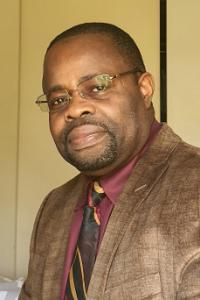Professor Apollos Okwuchi Nwauwa
IAS Fellow at St John's College, January - March 2025
Contact Details
- Home Institution email: nwauwa@bgsu.edu
- Durham email: TBC
- Durham Tel: TBC
Apollos Okwuchi Nwauwa is Professor of History and Africana Studies at Bowling Green State University, Ohio, USA. Although his scholarly works and impact have been quite eclectic, his research focus is on modern Africa, especially in the fields of state formation as well as colonial and postcolonial intellectual history. Earlier in his career, Professor Nwauwa took head-on the interpretive and analytical challenges of chronology and state formation in Africa, with the Aro state in Southeastern Nigeria as a case study. His essays on the Aro state formation process have appeared in significant international such Anthropos (Germany), Africa Quarterly (India), Ife Journal of History (Nigeria), and History in Africa (United States) as major reference works.
Professor Nwauwa is best known for his notable works on British colonial politics and policies of university development in Africa. He is the author of the seminal book, Imperialism, Academe and Nationalism: Britain and University Education for African, 1860-1960, (Frank Cass Publishers, London, 1997). This study established that the university question was central to post-war decolonization process in Africa, and that Britain embarked upon the project not only as a means of "managing" African nationalism but also as a way of fostering neo-colonialism. Prominent scholars in British imperial history in Africa include Frank Furedi (University of Kent at Canterbury), A.H.M. Kirk-Greene (St Anthony’s College, Oxford), John D. Hargreaves (Banchory), Ian Phimister (University of Cape Town), Clive Whitehead (University of Western Australia), Michael Omolewa (University of Ibadan), J. F. Ade Ajayi (University of Ibadan) among others, noticed and praised this work in their various reviews.
Professor Nwauwa’s more recent work, “Western Education and the Rise of a New African Elite in West Africa (2020) in Oxford University Research Encyclopedia, is now a major reference work in the field. In addition, he has co-edited six books including Against All Odds: The Igbo Experience in Postcolonial Nigeria (2011), Nigerian Political Leader: Visions, Actions and Legacies (2015), Governance and Leadership in Nigeria: Prospects and Challenges (2016), Politics and Identity Formation in Southeastern Nigeria (2019) and Culture, Precepts and Social Change in Southeastern Nigeria (2020). He is the Editor of OFO: Journal of Transatlantic Studies and serves on the editorial boards of several peer-reviewed international journals.
While at IAS, Professor Nwauwa will collaborate with colleagues in exploring further the rather atypical role of Durham University in the provision of higher education for Africans in Africa. It is intriguing that why, as early as 1876 and even before the British consolidated its colonial claims in Africa, Durham in collaboration with the CMS mission, crafted a special affiliation scheme that allowed Fourah Bay College (in Sierra Leone) to train Africans for Durham University degrees. Although the initial degrees at Fourah Bay were mainly in theology and classics, it was the first of its kind at such a time when the British exhibited much stereotypic trepidations regarding the intellectual capacity of Africans for advanced training.
Professor Nwauwa received his BA in History from Bendel State (renamed Ambrose Alli University) Ekpoma, Nigeria and his MA and Ph.D. (History) from Dalhousie University, Halifax, Nova Scotia, Canada. He has previously taught at Rhode Island College and Brown University both in Providence, Rhode Island, USA. In 2017, amongst other awards, Professor received the Carnegie Diaspora Fellowship for service in Ghana and in April 2023, Bowling Green State University named him “Professor of Service Excellence” for his outstanding national and international professional public service.
Events
TBC
Further Information
Links to more information about this Fellow and Fellowship


/prod01/prodbucket01/media/durham-university/research-/research-institutes/institute-of-advanced-study/43486-hero.jpg)
